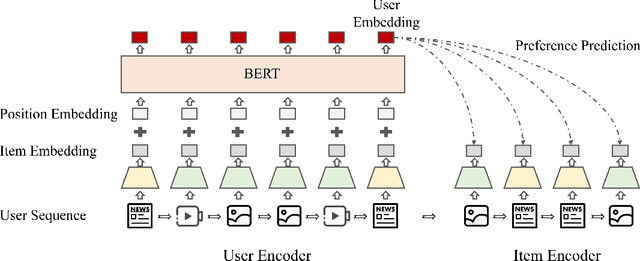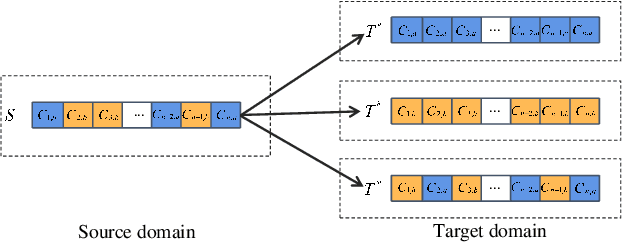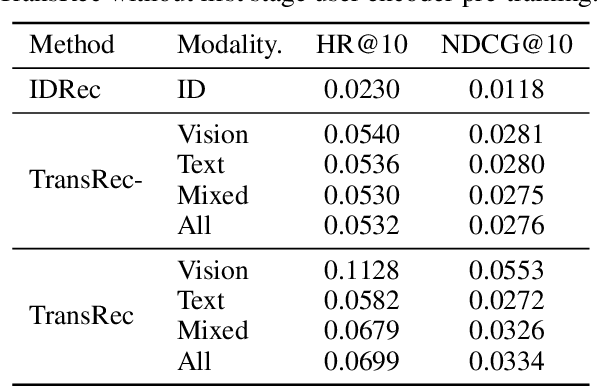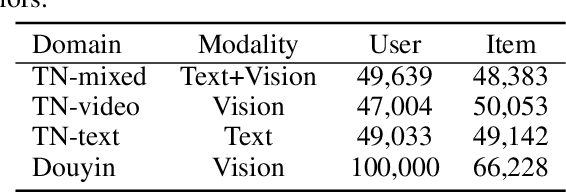TransRec: Learning Transferable Recommendation from Mixture-of-Modality Feedback
Paper and Code
Jun 13, 2022



Learning big models and then transfer has become the de facto practice in computer vision (CV) and natural language processing (NLP). However, such unified paradigm is uncommon for recommender systems (RS). A critical issue that hampers this is that standard recommendation models are built on unshareable identity data, where both users and their interacted items are represented by unique IDs. In this paper, we study a novel scenario where user's interaction feedback involves mixture-of-modality (MoM) items. We present TransRec, a straightforward modification done on the popular ID-based RS framework. TransRec directly learns from MoM feedback in an end-to-end manner, and thus enables effective transfer learning under various scenarios without relying on overlapped users or items. We empirically study the transferring ability of TransRec across four different real-world recommendation settings. Besides, we study its effects by scaling the size of source and target data. Our results suggest that learning recommenders from MoM feedback provides a promising way to realize universal recommender systems. Our code and datasets will be made available.
 Add to Chrome
Add to Chrome Add to Firefox
Add to Firefox Add to Edge
Add to Edge